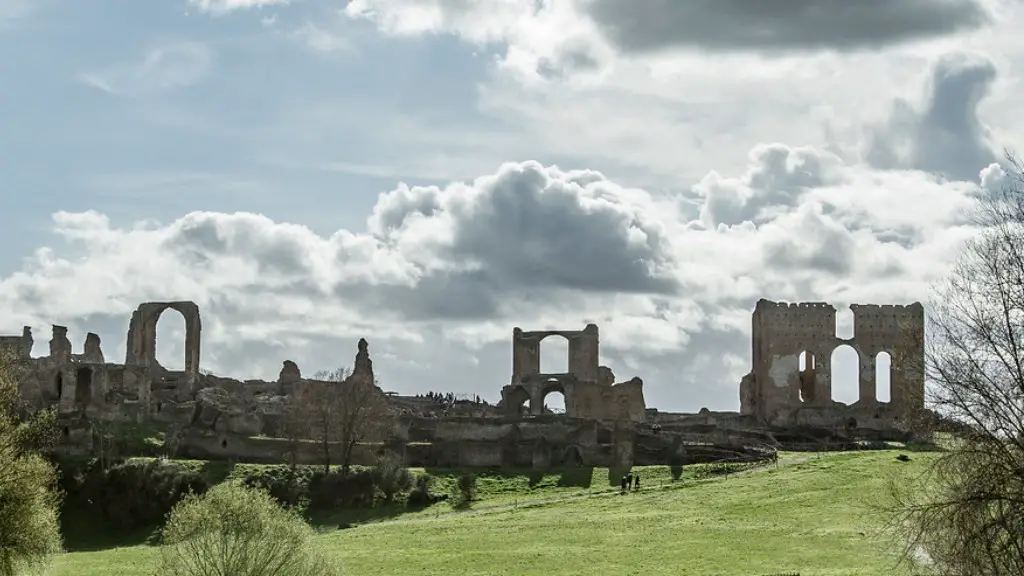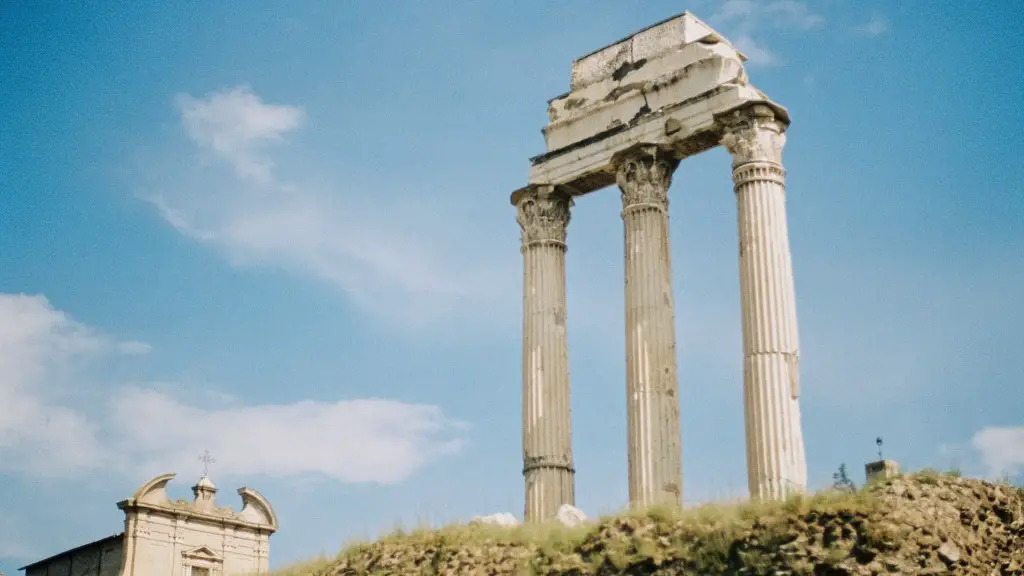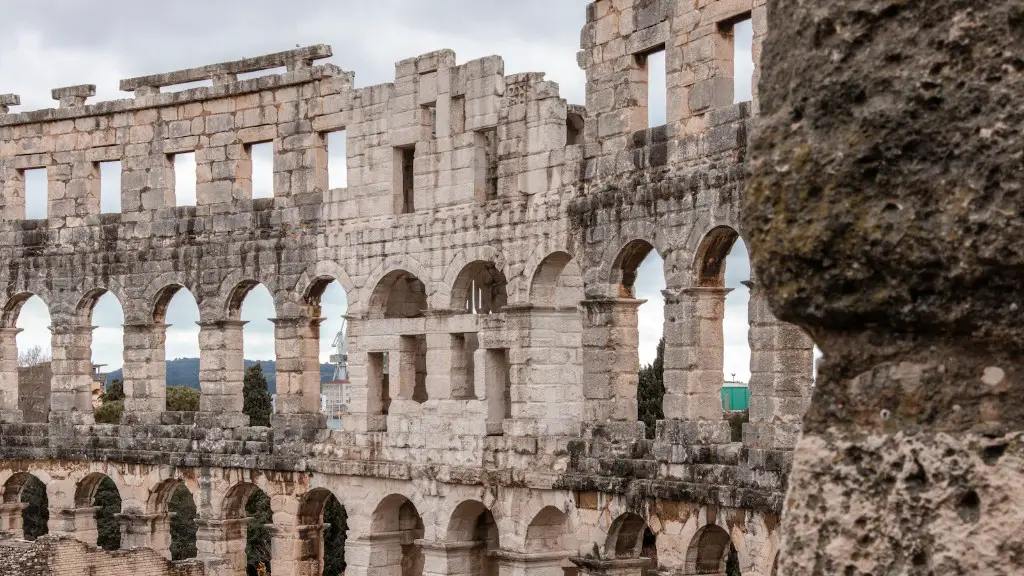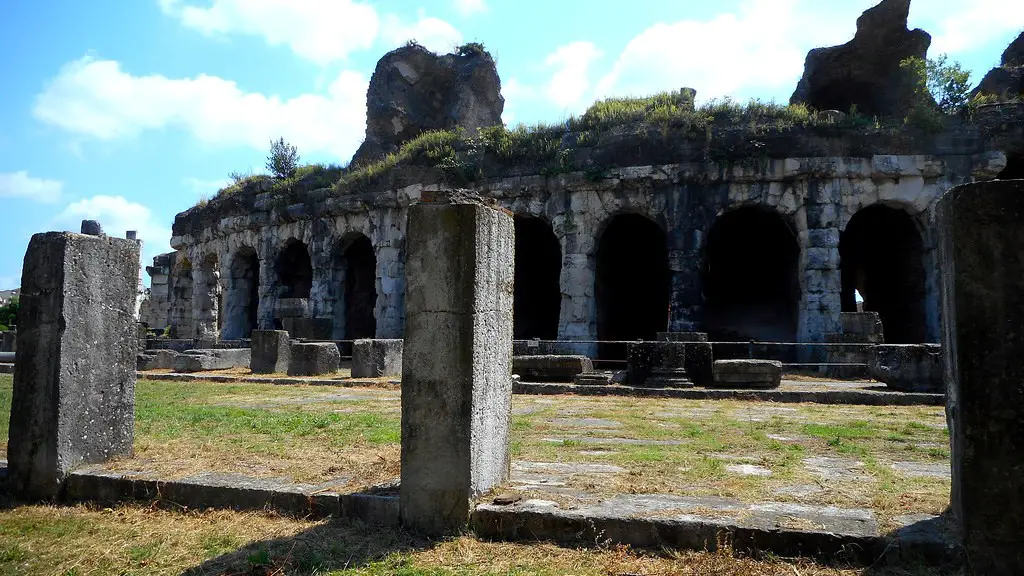Cato the Elder, also known as Marcus Porcius Cato, was an active political and military figure in Ancient Rome. He is most noted for his staunch adherences to Roman values and his tireless efforts to preserve Roman traditions and customs. His political ambition was focused on the conservatism of Rome’s constitutional government and his military efforts were devoted to defending Rome against her enemies. Born in the late third century BCE in Rome, Cato entered the Roman Senate in 204 BCE and eventually held the title of Censor, the highest office of ancient Rome. A formidable soldier in battle and an influential statesman of Rome, Cato is remembered as an influential figure in Roman society.
Cato is most famous for his stance on morality, an element of Roman life he championed during his long tenure in the Senate. He was a leader of the campaign for the restoration of traditional values and preservation of Roman morals. Although opposed in the Senate by the likes of Crassus and Caesar, Cato helped to lead the conservative movement within the Roman government, bringing moral and legal reform of Roman culture. Cato was also a passionate advocate for the Roman system of checks and balances among the Senate, Magistrates, and Consuls, ensuring the roles of government were correctly adhered to.
Cato is well remembered for his battlefield efforts and strategic genius. During his military career, Cato served in the First and Second Punic Wars, fought a variety of other battles, and even campaigned successfully against the Numidian tribes. He was widely respected for his ability to review the enemy’s tactics, formulate key strategies, and remove dangerous threats to the Roman state. Cato praised the individual Roman soldier’s bravery and his overall strategy was focused on minimizing Roman casualties in battle. He was honored with a Triumph and became a famous role model for young Roman men who provoked admiration for Roman military might.
Cato was also a renowned orator and supported procedural justice in the Roman Senate. He argued passionately, engagingly, and effectively on behalf of traditional Roman life and morality. His most famous oration concerns the death penalty for Lucius Sergius Catilina, a key figure in the Catiline Conspiracy of 63 BCE. Though popular for his orations, Cato had few lasting fans in the Senate and was often on the losing side of key debates. This may have been due to his uncompromising persona and his speaking style which did not persuade senators to his causes but instead punished those who opposed his vigilant stance on morality and responsibility.
Cato the Elder gave his last breath in 149 BCE as he chose to take his own life rather than be held captive by his enemies. His body was taken and cremated outside Rome’s walls and lamented in a funeral oration by the famous Stoic philosopher, Marcus Porcius Cato. His influence on Roman culture and political values remain visible today. Even Julius Caesar, who often disagreed with Cato’s stance on protecting Roman morality, praised his talent for oration and referred to him later as the “Gorgo of Rome”, a title given to Cato by Cicero.
Cato’s Influence on Classical Philosophy
Cato’s legacy on classical philosophy is complex and heavily debated. He was considered a “most distinguished Stoic amongst the Romans” by Marcus Tullius Cicero and a “philosopher of the highest rank” by Plutarch. Some scholars argue that Cato’s influence on Stoicism was pronounced and is a matter of record. For example, Stoic philosopher and Roman Senator, Marcus Aurelius valued Cato’s views on the practicality and rewards of virtue, especially in the example he set in his own life. There is also a strong argument to suggest that the practice of “Catonian” virtues has contributed to Rome’s reputation for order, justice and stability.
Others, however, claim that Cato had no meaningful impact on Stoicism at all. They believe that his public speeches had little impact on Stoic philosophy and virtue beyond his lifetime. According to this view, Cato’s major contribution to the field of Stoic thought was the Cato the Elder formula which argued that the path to moral excellence was to simply learn and practice knowledge. This formula has endured, but many believe its philosophical impact to be comparatively limited.
Interpretive Perspectives on Cato
Modern interpretive perspectives on Cato are more varied than ever. He has been portrayed as a conservative tyrant, fearless soldier, foolish politician, noble statesman, inspiring leader, and comic chatterbox. Historians generally view him as a complex figure: an ambitious politician who used his rhetoric and traditional ideas to combat excessive wealth, glamour and self-indulgence. Novelist George Eliot acted as one of the earliest modern interpreters of his life in her biography ‘The Life of Marcus Porcius Cato’, where she argued Cato was a hero who had faced many struggles for the Roman Republic.
Sociologists argue that Cato’s legacy speaks to the power of non-conformity and our ability to challenge the status quo. They point to Cato’s controversial views on politics and morality, asserting that his unwavering commitment to maintaining his own standards of conduct despite the opinions of those around him is a lesson that should still be taught today. It is believed that by challenging norms at their core, we can create a better society for all members. He is also viewed as a moral leader and public figure whose beliefs on freedom, justice and responsibility remain relevant today.
Cato in Modern Scholarship
Cato is a fixture of modern scholarship, primarily due to the body of literary works available which focus on his life and legacy. Numerous biographies have been produced which analyse his political and military career, his strong sense of morality and his devotion to traditional Roman values. These works offer a wealth of insight into the man and his times, providing readers with a comprehensive overview of his impact on Roman society.
Cato’s influence is also reflected in the fields of philosophy, law, political science and history. Scholars have long argued about the merits of his philosophy and the political theories which he formulated and advocated. Cato’s writings have been studied extensively, and his orations have been analysed to provide insight into the workings of ancient Roman government. His writing style has inspired numerous fictionalized accounts, and he is often used as a symbol for the preservation of rights, liberty and justice.
Cato has also featured in popular culture, usually in the form of a father-figure or a symbol of morality. His life has been dramatized in various formats, including theatre, television, and film. In addition, his name appears multiple times in literature, most notably in T.S. Eliot’s The Waste Land. He continues to inspire modern generations to dream of a world where freedom, justice and wisdom reign.
Cato in Italian Culture
Cato is a figure of national pride in Italy, celebrated for his efforts in protecting the Republic and its values. His name has become synonymous with Italian patriotism and his legacy is often cited when discussing the country’s great accomplishments. Numerous landmarks across Italy have been named after him, such as the city of Catania in Sicily or the Collina di Catone, a hill overlooking Rome. In addition, his likeness is depicted in various public structures and as statues in Rome, Pisa and elsewhere.
Cato is also remembered through festivals, processions and reenactments of his life’s achievements. The Roman historical society reenacted the victory against Hannibal in Cannae, and in Serrillo di Cannae an annual folkloric pageant is held as a tribute to Cato and the victory. There are also numerous events dedicated to Cato’s memory, such as the Certamen Catonianum festival in Via Catone, Rome and the yearly speech contests organized by the Accademia Porciana in his birthplace of Tusculum.
Cato’s life and story continue to captivate the public imagination and remain a beacon of strength for the Italian nation. He is revered for his commitment to Roman values and implementing ethical solutions to Rome’s problems. His legacy will continue to inspire people for generations to come, offering comfort and solace in times of crisis.
Legacy of Cato Today
Cato’s legacy has transcended the passage of time and his legacy is still visible today. His name has been immortalized in the names of many public institutions, the best example being the Cato Institute, a think-tank based in Washington D.C. His values, especially his commitment to traditional sex roles, have been taken up by modern conservative movements. His predictions of the fall of Rome have been interpreted in contemporary political analysis as a warning of unchecked power.
In modern society, Cato is often invoked in matters of morality. His famous ‘Catonian’ virtues are argued to be a sensible solution to modern problems and his diligence in the preservation of Roman values is praised by many. It is through this legacy that Cato was able to leave a lasting impression on modern thought and culture.
Cato’s lasting legacy illustrates how a single individual can have a great effect on world history. He is remembered as a courageous soldier, an unwavering statesman and an inspirational orator. His commitment to political and social justice has shaped our modern understanding of morality and his dedication to the Roman Republic is an example for future generations.




